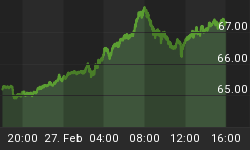Below is an excerpt from a commentary originally posted at www.speculative-investor.com on 1st March 2012.
"Is the Fed a Failure?" is the title of an article by Gene Epstein in the 27th February edition of Barrons magazine. The article draws on the work of economist George Selgin to argue that the answer to the question is yes, the Fed is a failure. Unfortunately, while this is the right answer the method used to come up with it is not persuasive.
According to Epstein: "It would be one thing to argue, based on some non-mainstream theory of the dynamics of money and credit, that a central bank is a bad idea. But Selgin forgoes such subtle arguments, preferring instead a simple before-and-after approach. He asks whether the economy, as measured by the central bank's own objectives, performed better after the Fed was created than it had before." Selgin apparently analysed pre-Fed and post-Fed data to show that even by its own yardsticks (price stability, employment, frequency and severity of recessions), the Fed had not been a success. Moreover, the Fed's lack of success is still evident if the Great Depression of the 1930s is excluded from the data comparison.
It is not the least bit surprising to us that the historical record doesn't justify the Fed's existence, but no definitive conclusions can be drawn unless the data are viewed through the lens of good economic theory. For example, in the absence of good theory Fed apologists could argue that although the historical record doesn't seem to validate the Fed, things would have been much worse without the Fed. The pro-Fed crowd could also argue that the concept of a central bank is good, it's just that the right people haven't always been in charge. It could even be argued that the Fed has been less effective than originally envisaged because it hasn't had enough power. In the absence of good theory, how could these arguments be refuted?
In other words, data showing that the Fed hasn't performed as advertised could just as easily be used to support giving the Fed more power as to support the abolition of the Fed. To make sense of the data you first need to know the right theory. The Fed doesn't work in practice BECAUSE it doesn't work in theory.
"Austrian" economic theory explains why the Fed hasn't achieved its publicised objectives*. This is obviously the "non-mainstream theory of the dynamics of money and credit" that Epstein is referring to in the above quote, since the Keynesians, the Monetarists, the Socialists, the Communists and the Fascists are all in favour of a central bank. A good economic theory will be consistent with the data, but it will often be possible to interpret the same data in different ways to fit multiple theories. That's why "Austrian" economists can point to the performance of the US economy over the past three years and say "see, we told you that the stimulus programs were a bad idea", and Paul Krugman in all seriousness can point to the same economic performance and say "see, I told you that the stimulus programs weren't big enough". Either the whole concept of government-funded economic stimulus is wrong or the stimulus didn't work as advertised because it was too small. You can't possibly determine which of these diametrically opposite points is correct unless you begin your analysis with the correct theory.
The futility of analysing the historical economic record without the aid of a good theory is highlighted by the second-last paragraph of the Epstein article. Here is the offending paragraph:
"There is also a good reason for believing that the Fed has done more harm than good: the much larger role of government and its counter-cyclical stabilizers post-World War II as compared with pre-1913. Due to that factor alone, mainstream economics itself dictates that the economy should have performed better in the more recent period. If instead it performed worse, what might be the cause? A chief destabilizing suspect: the Federal Reserve itself."
According to the above, IF we make the assumption that the government's expanded role and counter-cyclical stabilizers should have caused the economy to perform better during the more recent period, THEN the economy's deteriorating performance constitutes evidence that the Fed has made things worse. The only problem is, the assumption is completely illogical in that the expansion of government is the main reason for the long-term weakening of the economy.
It's absurd to argue that the Fed does damage by negating the good work of the government. The truth is that the Fed does damage by facilitating the government's growth, as it would be difficult for the government to grow and impossible for the government to grow rapidly if not for the Fed's ability to create an unlimited amount of money out of nothing.
The bottom line is that Epstein's article gets to the right place (the Fed is a failure) in the wrong way.
*We say publicised objectives rather than intended objectives, because we do not believe that the Fed was created by people with good intentions.
We aren't offering a free trial subscription at this time, but free samples of our work (excerpts from our regular commentaries) can be viewed at: http://www.speculative-investor.com/new/freesamples.html















